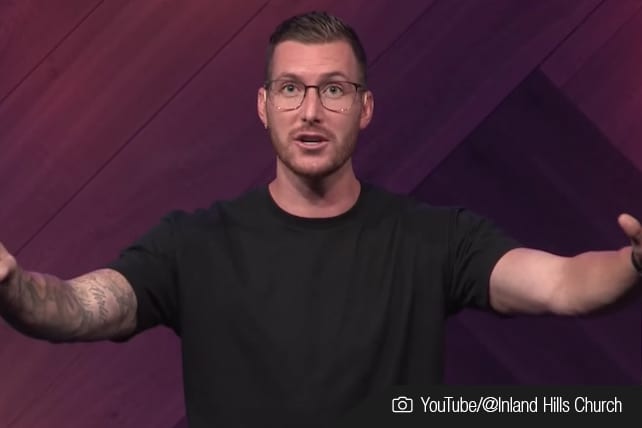Stoecklein is familiar with this phenomenon. Last year, his church, Inland Hills Church in Chino, California, experienced its highest attendance numbers, the budget was the best it had ever been history, things had been going well. In a candid remark, Stoecklein says there is an interesting balance here—the church is thriving, but the pastor is crumbling and weak and exhausted.
Why is Stoecklein crumbling under depression and anxiety?
That’s a question he has tried to answer repeatedly over the last few months. Stoecklein recounts a handful of things that could have triggered his breakdown: His family has been plagued by a stalker that caused them to sell their home and move. He had two surgeries to remove a “softball-sized mass” from his chest and passed 60 kidney stones. On top of this, he decided to go to India and Africa for ministry earlier this year. He experienced several panic attacks while overseas. Then he came home and preached at seven Easter services.
When the services and the jet lag were over, though, Stoecklein still had problems. One day, his wife convinced him to go to the hospital while he was experiencing a panic attack. Stoecklein described how debilitating it was to be saying things that were so far removed from what he would normally say while having medical staff attend him who also attend his church. At that point, the board at Inland Hills told him they didn’t think it was a good idea for him to preach that weekend. He agreed.
The lesson in this personal episode was that “When you can hit the wall and say ‘I can’t’, then you can acknowledge that God can.”
Scripture, Stoecklein says, has been preserved so that we can have something to relate to. For instance, in Elijah’s story, we see mental illness on display. We don’t like to talk about mental illness in the church, but Scripture is filled with “men and women who have struggled with their emotions and feelings and have been honest.”
Stoecklein then shares some statistics about mental illness that are quite sobering:
1 in 5 adults in the U.S. experience mental illness.
1 in 25 live with severe mental illness.
1 in 5 children ages 13-18 have, or will have, a serious mental illness.
Suicide is the third leading cause of death for youth 10-24.
90 percent of those who died by suicide had an underlying mental illness.
Depression is the leading cause of disability worldwide.
Stoecklein puts this in a perspective his southern California congregation will understand: “We live 20 minutes away from ‘the happiest place on earth’ [Disneyland] and our community is filled with the most unhappy people on the planet.” We have to acknowledge our pain, Stoecklein concludes.
Again going back to his personal story, Stoecklein says receiving a doctor’s diagnosis of depression and anxiety was shocking to him at first. After a while, though, it was a relief to understand what was happening to him.
Going back to Elijah, he says he runs to the wilderness because this is the state his soul is in. The wilderness is also the place where God does his greatest work and speaks the loudest to us.
Next, Elijah retreats to the back of a cave (the title of the sermon). It is here that we are given a picture of a rhythm of rest we should follow. Elijah sleeps, eats, and repeats. Early on his journey of battling depression, Stoecklein said a counselor told him about a similar pattern in silverback gorillas. The counselor said every once in a while, a male gorilla will leave his partner and offspring to retreat to the back of a cave just to sleep.
After the rest, though, Stoecklein says it’s important to get up and go back to work, like Elijah did. Sometimes you have to get back to work to move forward.
Perhaps Stoecklein felt getting back to work and preaching this message would help him.
Lesson 2: The Fact That We Are Full of Depression and Anxiety Makes Us Reach Out to the One Who Isn’t
In his second sermon, Stoecklein starts with a question: What do you think God thinks about when he thinks about you?

